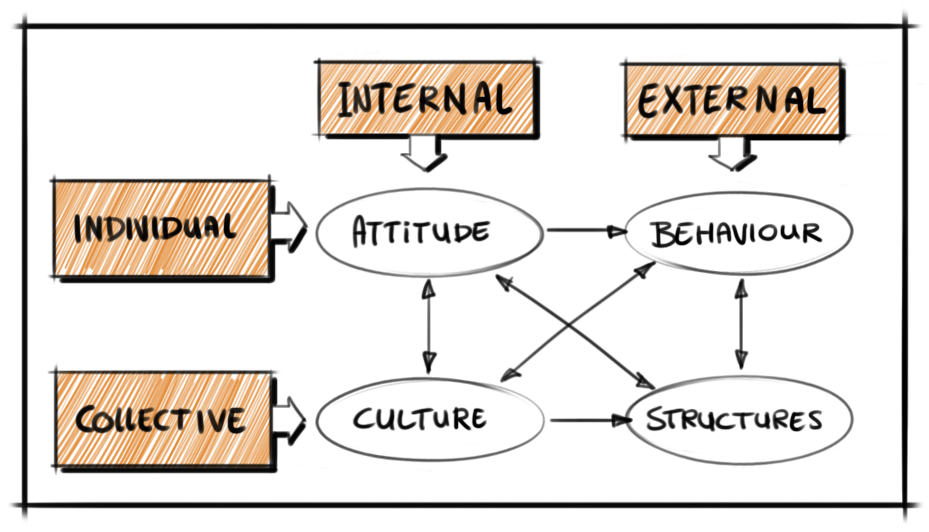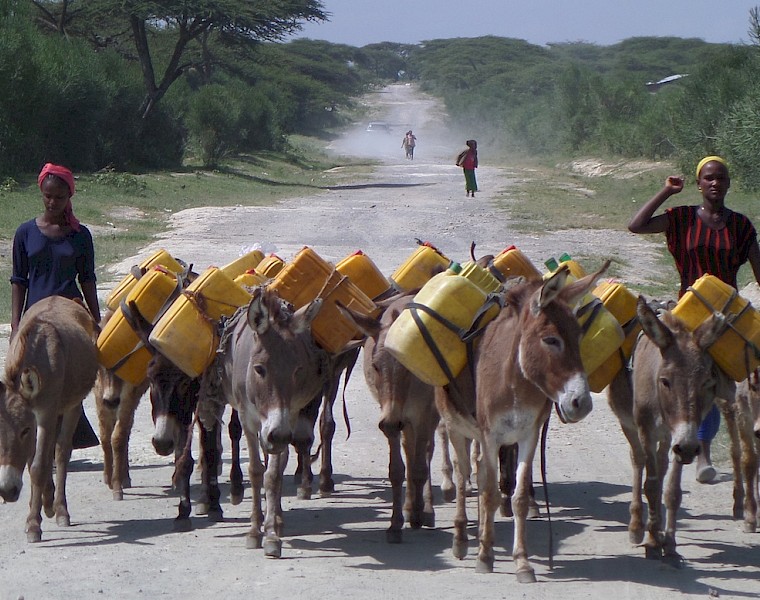And also 'suddenly' the undercurrent of new sustainable agroecological initiatives becomes visible, worldwide. Obviously we start looking and judging differently to what we earlier accepted as the regular way of working and living.
Everywhere in the world we see new initiatives emerge. For example in the Netherlands we saw within a year the emergence of the societal Transition Coalition, the the Deltaplan Biodversity (to reinstall biodiversity in our production processes). Since 4 years there is the social enterprise Commonland, working in a similar way as groundswell international. I find the logo of the Canadian conference below significant- there are acually waves of change happening. .

Ken Wilber explains this process in a simple way. At first, the New Normal is not visible yet as the transition occurs unconsiously, or consciously but hidden, at an individual level (attitude) and internally at a societal level (culture). Only when the transition manifests itself in forms that we can see, like new ways of producing, building, land use, soil management, water management, then we can see the change (in BEHAVIOUR and STRUCTURES)

So what changed structures and forms are emerging?
1. Industrial agriculture producing a lot of cheap food (as was the intention just after worldwar II), but now showing all it's failures and negative impacts: demolishing rainforest for soy for animal feed, glyfosate causing bad health, animal diseases, dead soils, erosion, less minerals in food, farmers going bankrupt, enormous negative footprint, using animals as 'things' instead of living beings, that can be exploited. Many people now realise that there is no other way than to change such agriculture drastically and structurally.This realisation may still be in the ' atiitiude' and ' culture' sphere, but already new forms and structures are emerging...
2. Innovative farmers, NGOs, private enterprises, cooperatives worldwide taking initiatives to do things dfferently, more sustainably, more socially responsible, with respect for animals, all respecting the complex social and eological system that produces food. See my Yellow Pages freely downloadable at SHOP
3. We see UN organisations (like FAO, special embassador for food), international NGOs (Solidaridad, Friends of the Earth, European Association for Agroecology) and scientists enlightening and encouraging people to make the change to more integral ways of producing food, of recycling nutrients, of food sovereignty. What additionally s needed is government enabling and encouraging these new developments, engaging people in making the turn and exemplifying the New Normal. For that, translation of what scientists, conferences and advisory boards say is much emeded. That is what I hope to do with this website and blogs.


